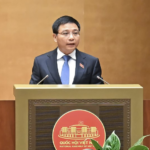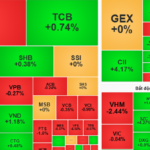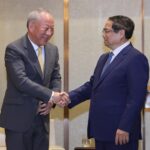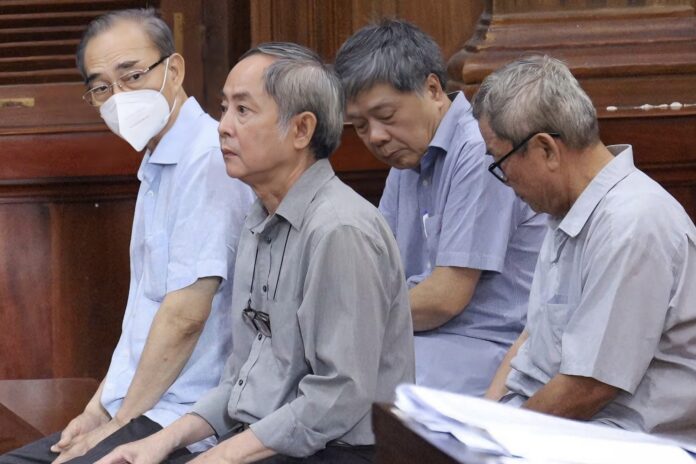
Former Vinafood II Executives Face Trial for Misconduct
On the morning of May 12, the Ho Chi Minh City People’s Court tried six defendants, former executives of the Southern Food Corporation (Vinafood II), for misconduct related to the land lot at 132 Ben Van Don, Ward 6, District 4, Ho Chi Chi Minh City.
The defendants include Truong Thanh Phong (72 years old, former General Director), Tran Van Ven (76 years old, former Chairman of the Board), Vu Ba Vinh (66 years old, former Board member and Chief Inspector), Truong Van Hua (70 years old, former Board member), Truong Van Anh (69 years old, former Board member), and Tran Bay (65 years old, former Head of Planning and Strategy).
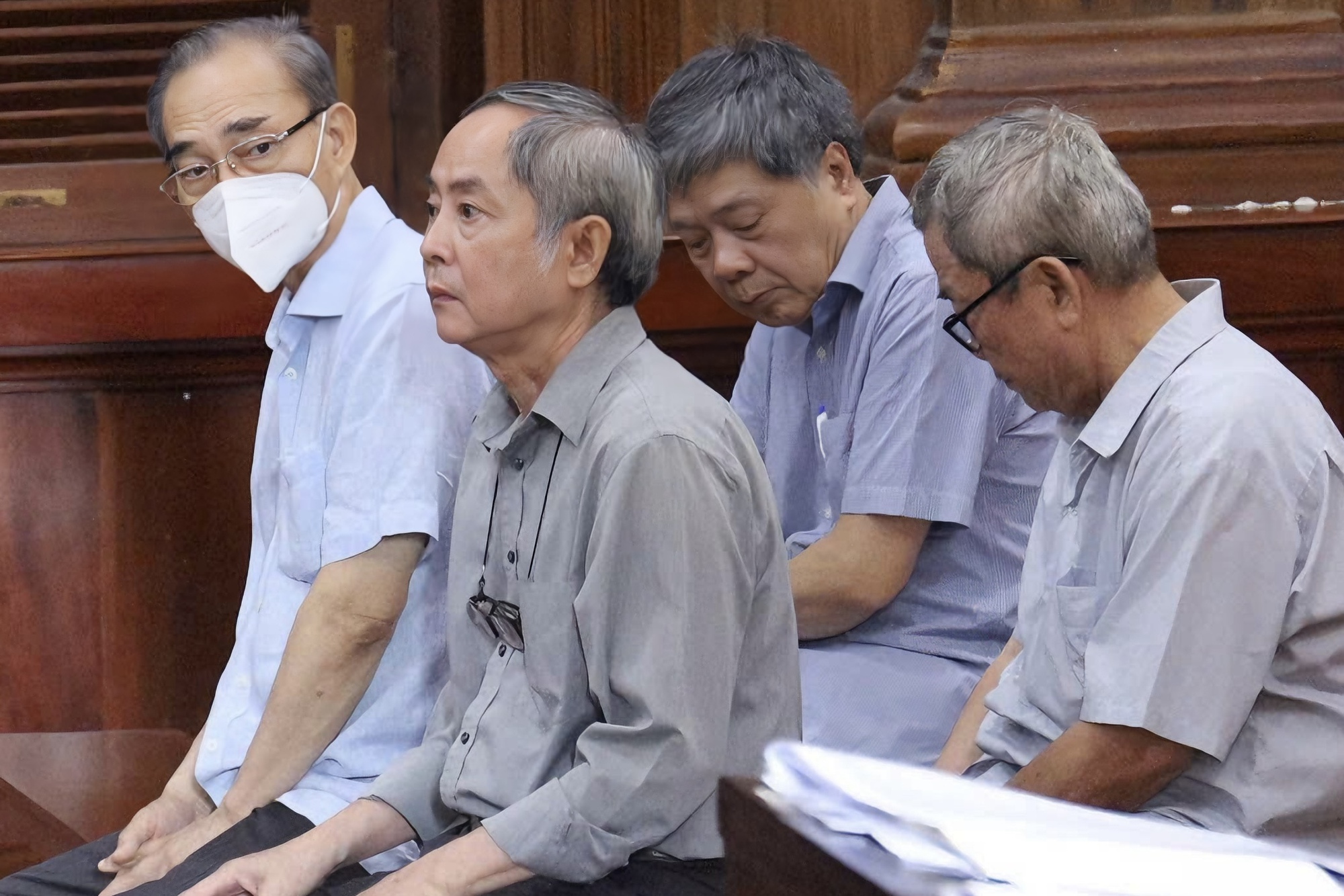
Four out of the five defendants attending the trial
Vinafood II is a wholly state-owned enterprise, entrusted with managing and utilizing the land lot at 132 Ben Van Don. In executing the Prime Minister’s Decision No. 80 dated May 24, 2001, on the handling and rearrangement of state-owned houses and land in Ho Chi Minh City, Vinafood II reported, proposed, and received approval from the Ho Chi Minh City People’s Committee and the Ministry of Finance to change the land use purpose to implement the project of constructing a high-rise apartment building combined with a commercial and service center and office building for lease. They were also approved as the project’s investor.
During the implementation process, before obtaining the land use right certificate, the members of the Board of Directors of Vinafood II (in 2007) consisting of Tran Van Ven (Chairman), Truong Thanh Phong (General Director), Vu Ba Vinh (Member and Head of the Inspection Board), and Truong Van Hua (Specialized Member) agreed to use the land use right to contribute capital to establish Vinh Hoi Joint Stock Company.
The nature of this action was that Vinafood II applied for land allocation with a collection of land use fees in the form of designation, and then transferred the land use right to Vinh Hoi Company at a price equal to the amount of money already paid to the state budget, in exchange for owning 10% of the charter capital in this company.
By 2010, when the land use certificate was issued, Vinafood II did not record an increase in assets or establish fixed asset dossiers. The Board members at this time, including Tran Van Ven, Truong Thanh Phong, Vu Ba Vinh, Truong Van Hua, Truong Van Anh, and Tran Bay (Head of Planning and Strategy, Vinafood II’s representative at Vinh Hoi Company), completed the procedures for transferring the land lot at 132 Ben Van Don to Vinh Hoi Company in the form of a capital contribution contract, signed on January 27, 2011.
The value of the capital contribution was determined to be exactly the amount of money that Vinafood II had paid to the state budget in 2007 and 2009, without re-evaluating the value of the asset at the time of contribution. At the time of the capital contribution, Vinafood II still held 1.5 million shares in Vinh Hoi Company. Following the Prime Minister’s directive on divesting capital from non-core businesses, Vinafood II sold all these shares on November 13, 2015, through Bao Viet Securities Joint Stock Company. The book value was VND 15 billion, but after the auction, Vinafood II retrieved VND 45 billion, with the difference booked as profit from divestment.
According to the conclusion of the asset valuation, at the time of signing the capital contribution contract (January 27, 2011), the actions of Truong Thanh Phong and his accomplices caused a loss of more than VND 113 billion. After deducting the recovered value from the sale of shares, the state actually lost more than VND 68 billion.
The defendants were indicted for “Violation of regulations on the management and use of state assets, causing waste and loss.”




























